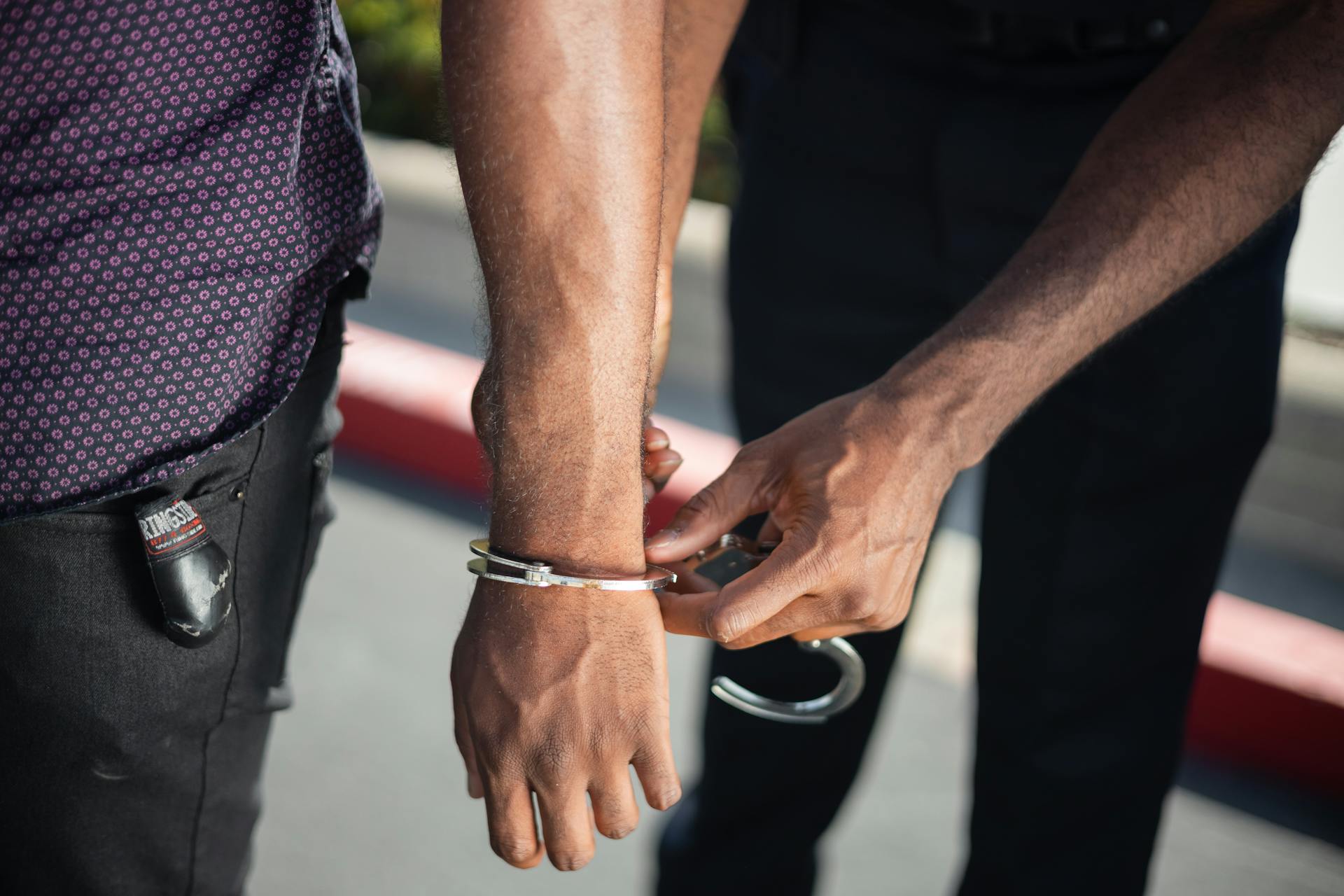Understanding your rights when undergoing arrest or questioning by law enforcement is crucial. This is where Miranda Rights play a role, one of the most well-known legal protections in the United States.
Miranda Rights are designed to protect individuals from self-incrimination during interactions with the police.
In this guide, I will cover everything you need to know about your Miranda Rights in Texas, including its legal background, how Miranda Rights are applied, and what happens if they are violated.
What Are Miranda Rights?
Before conducting a custodial interrogation, it is a legal requirement for law enforcement to inform the suspect of their rights – Miranda Rights. Miranda Rights were established by the U.S. Supreme Court in 1966 in Miranda v. Arizona. The Miranda warning typically includes the following:
- You have the right to remain silent.
- Anything you say can and will be used against you in a court of law.
- You have the right to an attorney.
- If you cannot afford an attorney, one will be appointed for you.
Miranda rights are to protect your Fifth Amendment right against self-incrimination and the Sixth Amendment right to legal representation.
The Legal Basis of Miranda Rights
Miranda Rights stem from the Fifth Amendment of the U.S. Constitution, which protects individuals from testifying against themselves. Miranda Rights are then strengthened by the Sixth Amendment ensuring everyone has the right to legal representation.
Miranda Rights in Texas are governed by federal and state law. Though Miranda Rights apply nationwide, Texas courts have developed specific interpretations and procedures that affect how these rights are applied.
When Do Miranda Rights Apply in Texas?
Miranda Rights are often misconceived – and one of the most common misconceptions is that they apply in all interactions with law enforcement. However, it is important to know that Miranda Rights only apply in specific situations.
Two situations where Miranda Rights are applicable are:
Custodial Interrogation: Miranda Rights must be read when a suspect is in custody and subject to interrogation. This could be an arrest or any situation where the person would not feel free to leave.
Interrogation: Interrogation refers to questioning or any actions by the police that are likely to elicit an incriminating response. This includes formal and informal questions.
The Impact of Miranda Rights Violations in Texas
If law enforcement fails to give suspects the Miranda warning when required, any statements made by the suspect during custodial interrogation may be excluded from evidence in court.
This is the “exclusionary rule,” which prevents the police from using illegally obtained evidence from being used against a defendant.
The defendant’s attorney can file for a motion to suppress if the court determines that a suspect’s Miranda Rights were violated. If the motion is then granted, the prosecution cannot use those statements as evidence.
However, there are still some exceptions. For instance, if the prosecution can prove that the statement was voluntary or given before the suspect was in custody, the court may allow it as evidence.
Exceptions to Miranda Rights in Texas
Although Miranda Rights provide protection, there are certain instances where there are exceptions that the rights may not apply:
Public Safety: If there is a threat to public safety, police officers may not read the Miranda warning. This is allowed to prevent major damages or harm to the general public. However, the questioning must be limited to addressing the immediate threat.
Spontaneous Statements: If the suspect makes a statement on their own without prompting or questioning from law enforcement, it may be admissible.
Routine Booking Questions: Questions that are normally asked during booking like the suspect’s name, address, or date of birth do not require a Miranda warning. These are simply administrative questions.
Exercising Miranda Rights in Texas
If you’re ever in a situation where Miranda Rights are required, it is important to know how they are applied and exercised. Here are a few very critical things to remember.
Remain Silent: If you are in custody, you have the right to remain silent. And you should. You can clearly state that you are invoking your right to remain silent. This reduces your chances of self-incrimination and prevents you from saying anything that can be used against you.
Request an Attorney: Based on the 6th Amendment, all individuals have the right to an attorney. If you have legal representation, explicitly state that you are invoking your right to an attorney. Once you have asked for an attorney, the police must stop questioning you until your attorney is present.
Do Not Waive Your Rights: Sometimes, the police may ask you to waive your Miranda Rights by signing a waiver form. Do not sign any waiver unless you fully understand what it means and you are volunteering to sign it.
Common Misconceptions
Miranda Rights can lead to confusion, however, if you are well aware, chances are you can navigate through these misconceptions seamlessly.
Misconception # 1: Miranda Rights can be skipped
Though police must read Miranda Rights during custodial interrogation, the police may not read them during the arrest, especially when there is no questioning involved.
Misconception # 2: Automatic dismissal of criminal case
Miranda Rights must be read, and as you read, there are specific times they must be read. However, failure to read Miranda Rights does not automatically dismiss your criminal case. If Miranda Rights weren’t read, your statements may be excluded, however, other evidence will still be used.
Misconception # 3: Questioning without an attorney
If you voluntarily waive your right to an attorney, you can be questioned by law enforcement.
Miranda Rights for Juveniles in Texas
In the state of Texas, Miranda Rights are the same for juveniles as they are for adults. However, for those underage have additional protection. This includes two main things:
Parental Notification: When a juvenile is taken under custody, a parent or a guardian must be notified. Though the presence of parents is not required during questioning, it is advised for the juvenile to still have legal representation.
Statements: When dealing with juveniles, the courts scrutinize the voluntariness of waivers closely, more than they do for adults. Factors like age and intelligence are all considered to ensure the waivers were signed voluntarily.
Dealing with Miranda Rights Violations
If you believe that your Miranda Rights were violated, there are certain steps you must take immediately. One of the first steps is to consult an experienced criminal defense attorney who can help evaluate and determine if your rights were violated. This can assist the attorney in filing a motion to suppress any statement. Simultaneously, you must document the violation as best as you can – including the time, place, and what was said. This will help your attorney in building a defense. This will also allow your attorney to challenge the evidence in court potentially weakening the prosecution’s case.
Recent Developments in Texas
Miranda Rights have been debated consistently. Recent legislative changes in Texas impact Miranda Rights and here is how:
Body Cameras: Body cameras are increasingly used in Texas, and the captured footage can help the court determine if law enforcement properly informed suspects of their rights. This can be beneficial for both, the defense and prosecution.
Recording Interrogations: Some Texas jurisdictions have implemented mandatory electronic recordings of custodial interrogations. Similar to body cameras, these electronic recordings provide clear evidence. This may expand in the future and impact how Miranda Rights are enforced statewide.
Miranda Rights & Non-Citizens
As a criminal defense attorney, I get this question a lot. Do Miranda Rights apply only to U.S. citizens? And the answer is, no.
Non-citizens, including undocumented immigrants, have the same Miranda Rights as U.S. citizens. However, the implications of the Miranda Rights violation can be severe for non-citizens, since any statement can lead them to immigration courts as well.
Simultaneously, to ensure that Miranda Rights are not violated or waived because of the language barrier, Texas law requires that Miranda Rights are communicated in a language that the suspect understands.
Conclusion
Miranda Rights provide crucial protections to individuals subject to custody and interrogation. Whether you are a U.S. citizen or not, juvenile or adult, these rights are designed to prevent self-incrimination and ensure access to legal counsel.
If arrested or questioned, it is vital to remember your right to remain silent and your right to an attorney. Exercising your rights correctly, can impact the outcome of your case and highlight any violations by law enforcement.
If you are currently in a situation where you believe your Miranda Rights were violated, you must consult with an experienced criminal defense attorney in Texas.
Attorney Grant Frankfurt
Attorney Grant Frankfurt is a highly experienced criminal defense lawyer based in Dallas, Texas. For over a decade, Grant Frankfurt has helped individuals navigate the criminal justice system while minimizing the effects of charges. Schedule a consultation today online or call me at (214) 775-5050.


